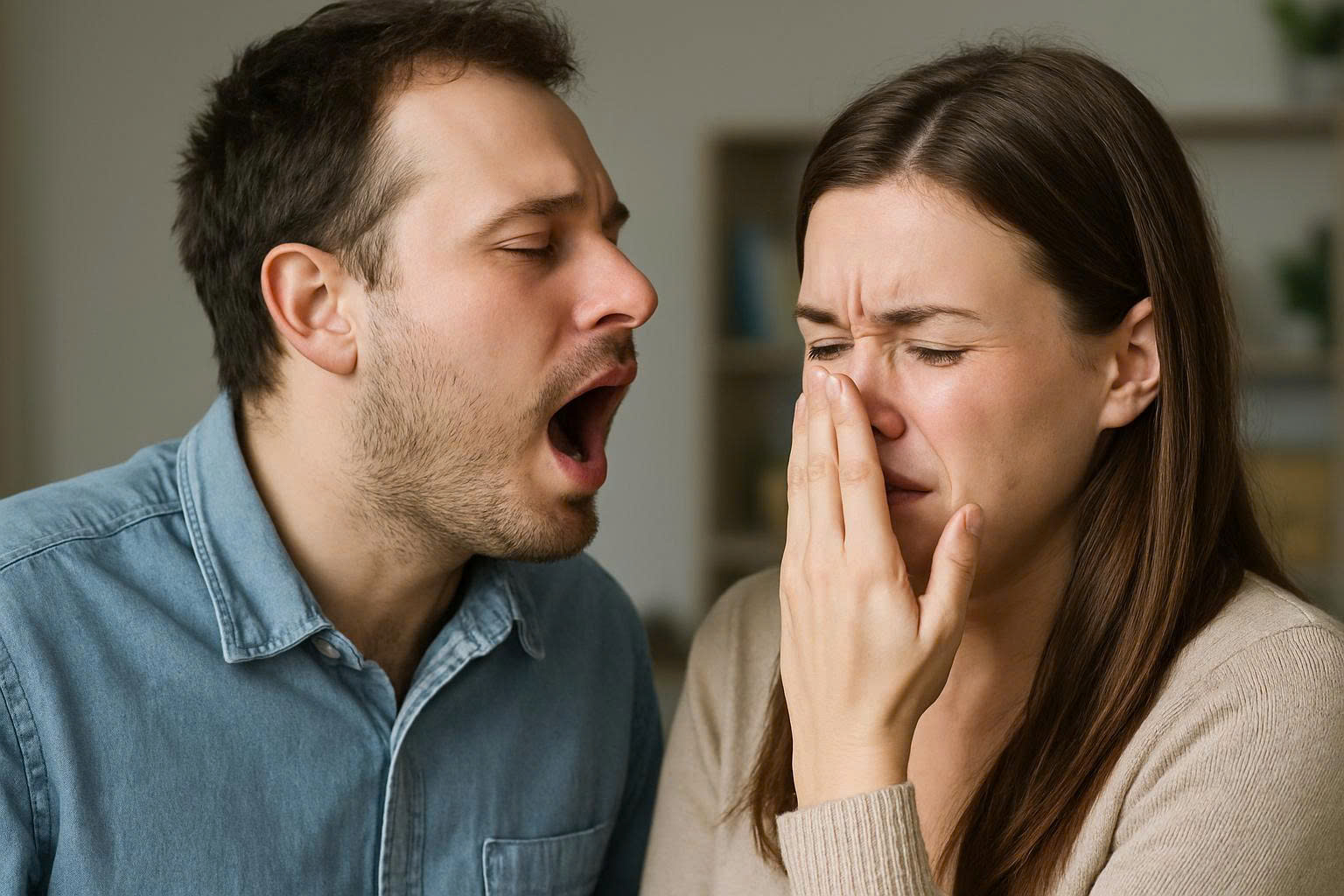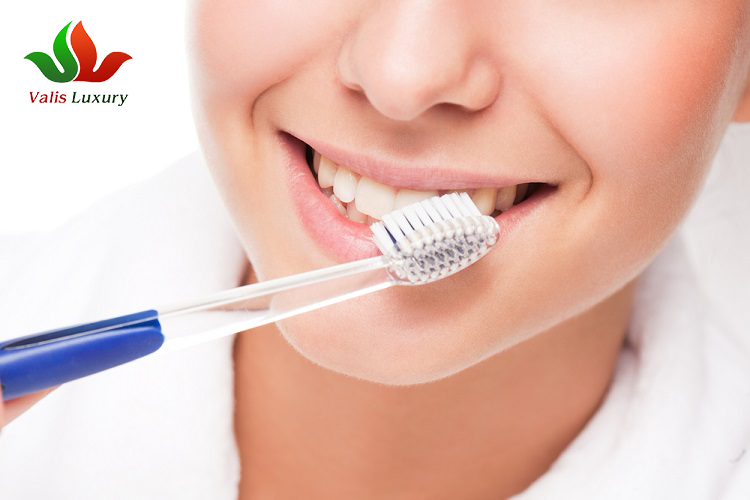Bad Breath Despite Brushing: Hidden Causes and Effective Treatments
Bad breath is a sensitive yet common issue that significantly affects confidence and everyday communication. Many people continue to suffer from bad breath even with regular and thorough brushing. So, what are the hidden causes? And is brushing alone enough?
In this article, Valis Luxury Dental breaks down the deeper reasons behind persistent bad breath and shares safe, effective solutions to help you regain long-lasting fresh breath.

Why You May Still Have Bad Breath Even After Brushing
1. Ignoring the Tongue and Interdental Spaces
Many people focus solely on brushing their teeth and neglect the tongue and areas between the teeth — prime zones for bacterial buildup.
- The tongue’s surface traps food particles and odor-causing anaerobic bacteria.
- Toothbrush bristles cannot reach between teeth, allowing plaque to accumulate.
Solution: Combine brushing with tongue scraping and daily flossing.
2. Odors Originating from the Throat or Tonsils
Chronic throat infections, tonsil stones (tonsilloliths), or pus-filled tonsils can release foul odors even when the mouth is clean.
- Those small white lumps in your throat are called caseum — a mix of dead bacteria, cells, and protein with a strong odor.
Solution: Visit an ENT specialist to check for throat infections or tonsil stones.
3. Gum Disease and Periodontitis
Bad breath can be an early sign of gum disease, which allows bacteria to thrive deep under the gums.
- Symptoms include red, bleeding gums, gum recession, and mild tooth mobility.
Solution: Visit a dental clinic for deep cleaning and periodontal treatment.
4. Cavities, Leaky Fillings, or Faulty Restorations
Tooth decay, damaged fillings, or poorly fitted dental work can harbor bacteria and debris.
- Dead or decayed teeth provide an ideal environment for anaerobic bacteria.
- Poorly sealed crowns or bridges can trap food particles.
Solution: Treat cavities, replace old fillings, and check dental restorations with a trusted dentist.
5. Dry Mouth – Reduced Saliva Flow
Saliva helps neutralize acids and wash away bacteria. A dry mouth leads to more noticeable bad breath.
- Common after waking up, drinking alcohol, or taking medications like antihistamines or blood pressure pills.
Solution: Stay hydrated, chew sugar-free gum, and avoid substances that reduce saliva.
6. Digestive Disorders or Acid Reflux
Gastroesophageal reflux (GERD) can push stomach acid up into the throat and mouth, causing sour-smelling breath.
- More common in people who eat spicy food, suffer from stress, or eat late at night.
Solution: Consult a gastroenterologist. Maintain a healthy diet and avoid lying down right after eating.
How to Effectively Control Bad Breath

✔ Brush Properly and Follow a Complete Oral Care Routine
- Brush at least twice a day using a soft-bristled toothbrush and fluoride toothpaste
- Floss daily
- Scrape your tongue using a dedicated tool or the back of your toothbrush
✔ Use Antibacterial Mouthwash
- Choose mouthwashes with chlorhexidine, cetylpyridinium chloride, or natural essential oils
- Note: Avoid alcohol-based rinses as they can dry out your mouth
✔ Visit Your Dentist Regularly
- Get professional cleanings every 6 months
- Detect and treat gum disease early
- Deep-clean hard-to-reach areas below the gums
- Examine dental restorations and fillings for damage
✔ Comprehensive Medical Check-up if Odor Persists
If you’ve maintained good oral hygiene but still notice bad breath:
- Check for throat infections, sinusitis, or tonsil stones
- Rule out acid reflux or digestive issues
- Evaluate salivary gland function and hormonal health
Potential Consequences of Untreated Bad Breath
- Social anxiety and loss of confidence
- Impaired professional and personal relationships
- May indicate underlying oral or systemic health issues
- Can lead to periodontitis and eventual tooth loss if untreated
Bad Breath Treatment at Valis Luxury Dental
At Valis Luxury Dental, we offer a comprehensive bad breath treatment program:
- In-depth examination to identify root causes
- Advanced scaling and polishing services
- Root canal therapy and replacement of faulty restorations when needed
- Professional oral hygiene guidance
- Recommendations for breath-freshening products
With experienced professionals and state-of-the-art technology, we are committed to restoring your confidence and fresh breath in just a short period of time.
Conclusion
Persistent bad breath, even with proper brushing, may signal oral or general health issues. Don’t let this small problem silently affect your quality of life. Identifying the true cause and implementing a complete treatment plan is the most effective way to eliminate odors and maintain a healthy, confident smile.
Book your consultation with Valis Luxury Dental today to discover your personalized solution to fresher breath and improved oral health.




